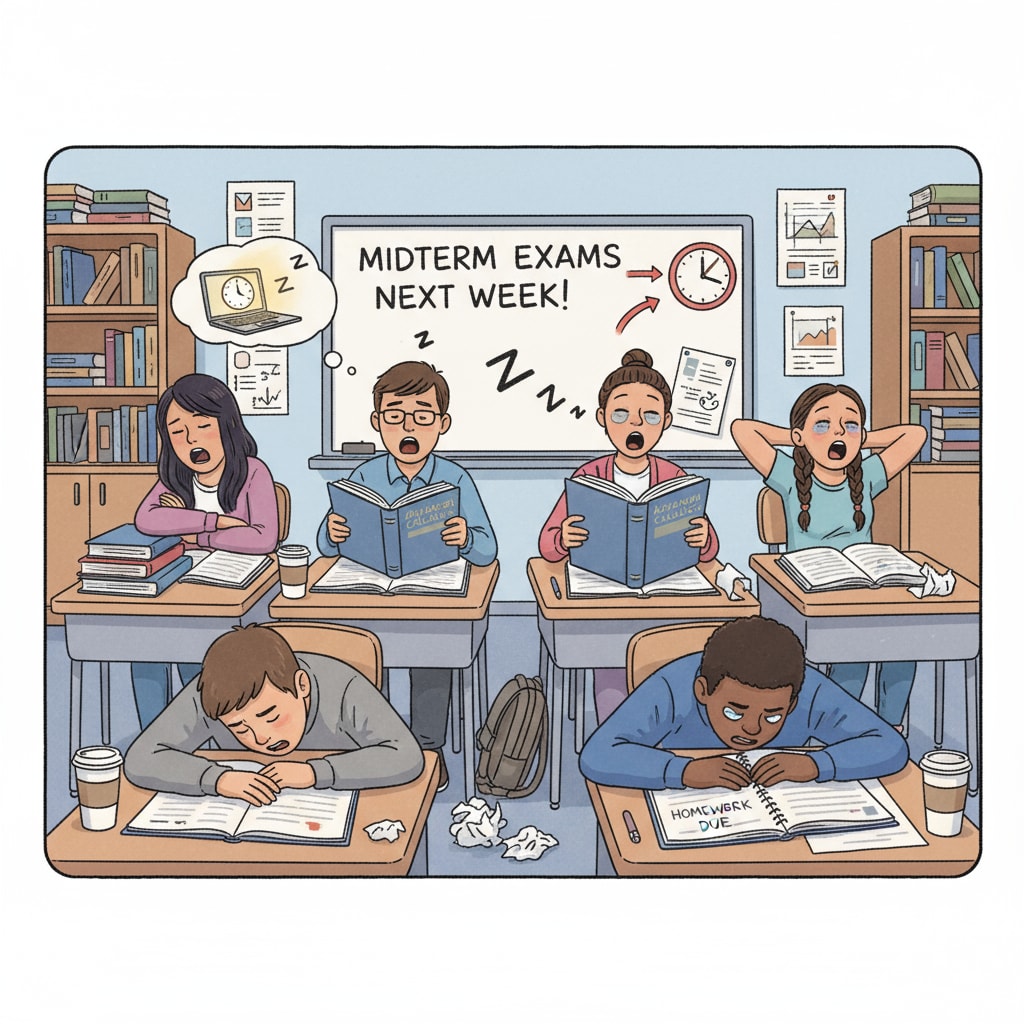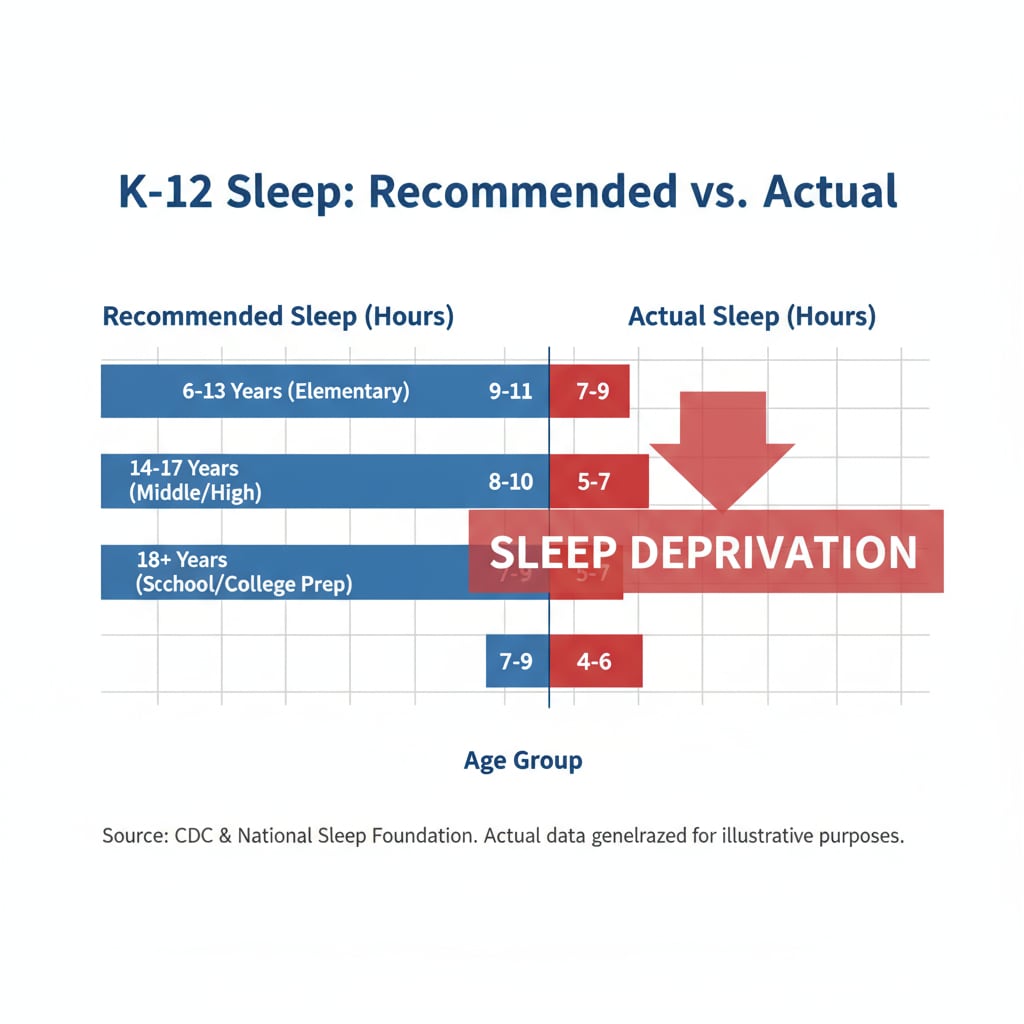Sleep deprivation, mental health, and school pressure are intertwined issues that significantly affect K12 students. In today’s educational landscape, students are often burdened with excessive academic demands, leaving them with insufficient sleep. This not only impacts their physical health but also takes a toll on their mental well-being.

The Alarming Prevalence of Sleep Deprivation
Sleep deprivation has become a widespread problem among K12 students. According to a report by the Centers for Disease Control and Prevention (CDC) CDC’s Sleep Data, a significant number of students are not getting the recommended amount of sleep. Long hours of studying, piles of homework, and early school start times are major contributors to this issue. For example, many students have to wake up as early as 6 am to get ready for school, and then spend hours on homework and extracurricular activities in the evening, leaving them with only a few hours of sleep.

The Devastating Impact on Mental Health
The lack of sleep can have a profound impact on students’ mental health. It can lead to increased stress, anxiety, and depression. When students are sleep-deprived, their brains are unable to function optimally, making it difficult for them to cope with the pressures of school. As a result, they may experience mood swings, irritability, and a decreased ability to concentrate. Moreover, sleep deprivation can also affect students’ self-esteem and social relationships, as they may become withdrawn and less engaged with their peers.
Readability guidance: By highlighting these issues in short paragraphs, we can clearly see the connection between sleep deprivation and mental health. We use active voice to make the statements more direct and understandable. Transition words like “moreover” help to smoothly introduce additional points.
The Role of School Pressure
School pressure is a major factor contributing to sleep deprivation among K12 students. The emphasis on high academic achievement, standardized testing, and a packed curriculum leaves students with little time for rest. Teachers and parents often have high expectations, which can create a stressful environment for students. In addition, the competitive nature of the education system can further exacerbate the problem. Students may feel pressured to excel in multiple subjects and participate in various extracurricular activities to stand out.
For instance, a student who wants to get into a top college may feel compelled to take advanced placement courses, participate in sports teams, and volunteer in the community. All these activities add up to a heavy workload, leaving them with less time for sleep.
The Importance of Self-Paced Learning
Allowing students to have more control over their learning rhythm is crucial for their well-being. Self-paced learning enables students to study at their own speed, without feeling rushed or overwhelmed. It gives them the flexibility to balance their academic work with other aspects of their lives, such as sleep, hobbies, and family time. When students are in charge of their learning, they are more likely to be motivated and engaged, which can lead to better academic performance.
For example, some schools are implementing flexible learning schedules, where students can choose when to attend classes and complete assignments. This approach not only helps students get enough sleep but also encourages them to take responsibility for their own learning. Flexible Learning Schedules
Practical Suggestions for Ensuring Adequate Sleep
To address the issue of sleep deprivation, several steps can be taken. Firstly, schools should consider adjusting their start times to allow students more time to sleep. Research has shown that later start times can lead to improved academic performance and better mental health. Secondly, teachers should assign reasonable amounts of homework and provide students with sufficient time to complete it. Additionally, parents can play a crucial role by setting a regular bedtime routine for their children and limiting their screen time before bed.
Students themselves can also take steps to prioritize sleep. They can learn effective time management skills, such as creating a schedule and setting realistic goals. By making sleep a priority, students can improve their overall health and well-being, and be better prepared to face the challenges of school.
In conclusion, sleep deprivation, mental health, and school pressure are serious issues that need to be addressed. By recognizing the importance of self-paced learning and taking practical steps to ensure adequate sleep, we can help K12 students thrive both academically and personally. It’s time for a change to protect the health and future of our students.


